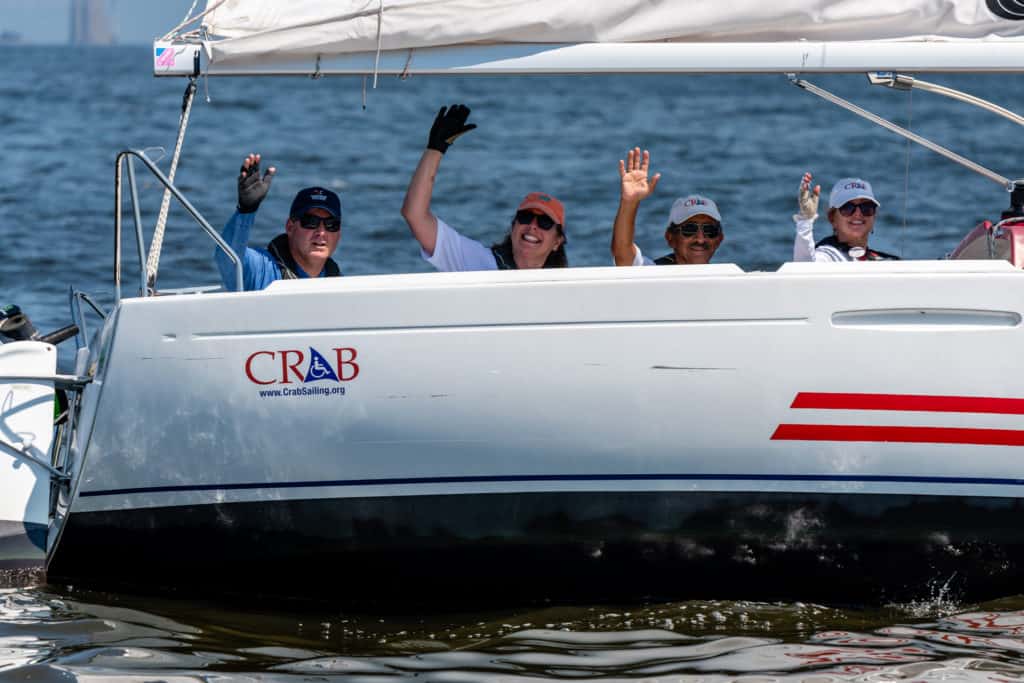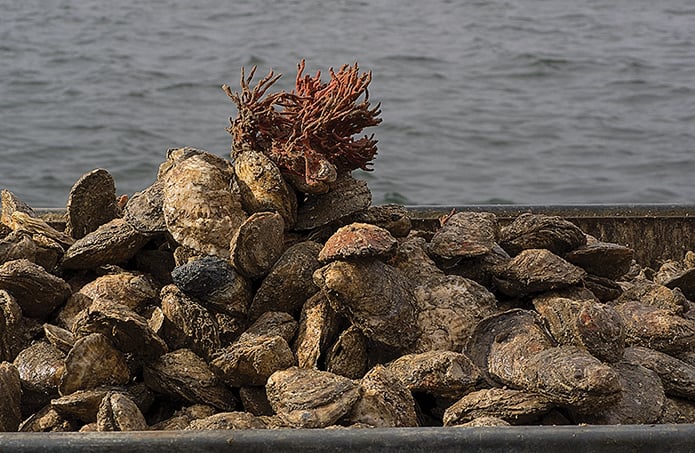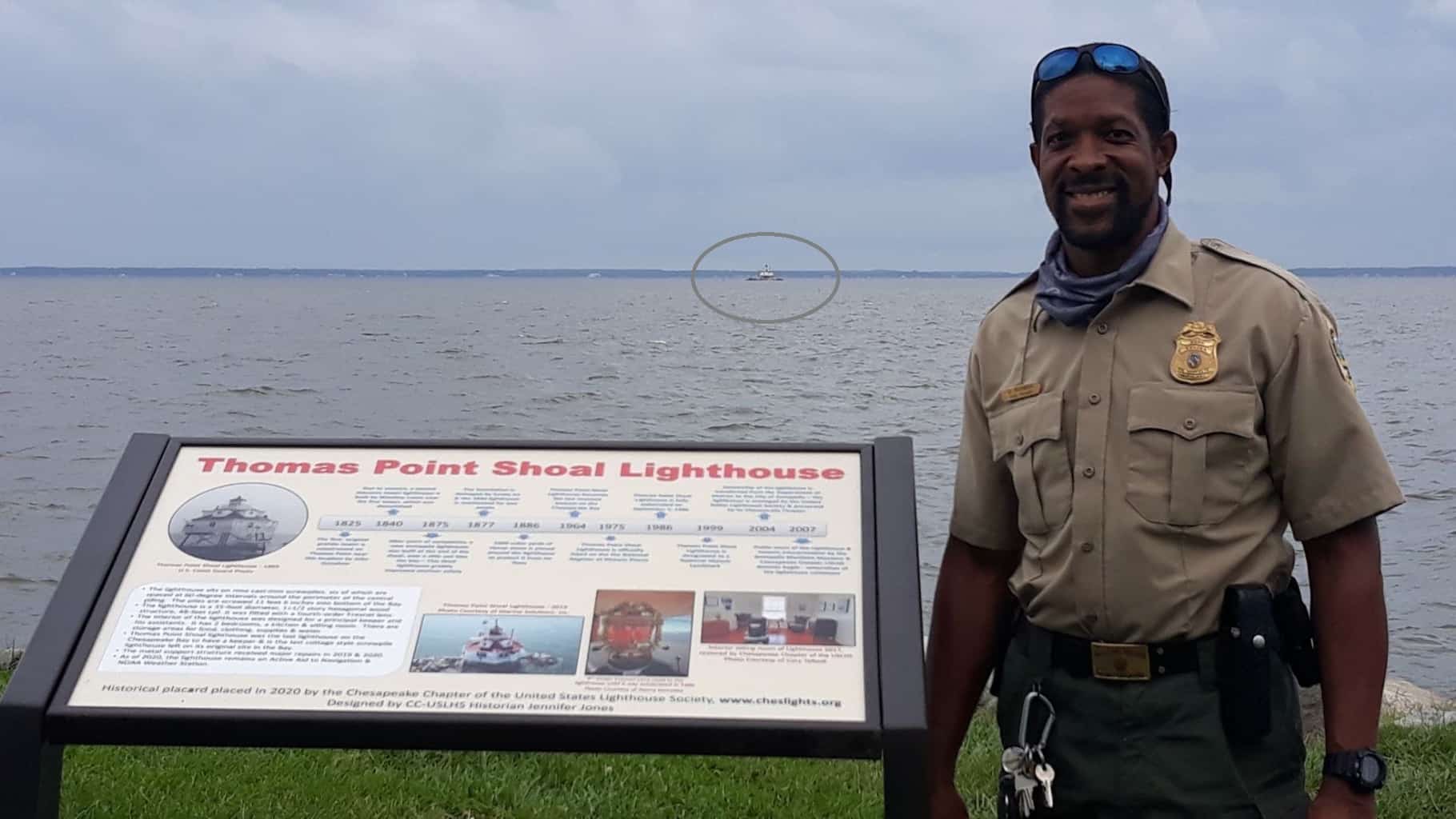The final numbers are in, and it’s official: In 2019, Chesapeake Region Accessible Boating (CRAB) hosted more guests and accumulated more volunteer hours than ever before.
During its roughly six-month season, the 28-year-old organization brought the thrill and freedom of sailing on the Chesapeake Bay aboard Beneteau First 22As (A for Adaptive) to 1,019 guests, a 19% increase from 2018 and the first time CRAB has eclipsed 1,000.
59 percent of guests were people with disabilities, recovering veterans, and local youth from at-risk neighborhoods, and the remaining 41 percent were family members, friends, and caregivers (including a number of service dogs). The 27 organizations that brought these guests to CRAB ran the gamut as well, from Anne Arundel County Police Kids Camp and Wounded Warrior Project to National Council on Independent Living and One World for Autism.
As for what made hosting so many people possible, 119 skippers, crew, organizers, and administrative personnel volunteered over 3,200 hours to CRAB in 2019, far surpassing last year’s 2,480 hours. They did so not only by taking guests sailing through programs such as CRAB Kids Sailing Camp and Family Sail Sundays, but also by coordinating events such as the CRAB Cup and fundraising $120,000 for the nonprofit.
CRAB was named the top Nonprofit Volunteer Program in Maryland for 2019 at the Governor’s Service Awards Ceremony, hosted by the Governor Larry Hogan’s Office on Service and Volunteerism, in October.
Reflecting on what made the award possible, Paul Bollinger, CRAB Executive Director, credits the exceptional professionalism displayed by skippers who must complete four check-rides, which assess both physical and emotional abilities, with a Fleet Director before being allowed to take guests out to sail – regardless of their sailing experience.
But CRAB is already focused on the future. The organization will kick off 2020 with a campaign to raise $1.2 million to fund its Adaptive Boating Center, to be built on Back Creek in Annapolis. While CRAB waits on the final DNR approval of a Program Open Space grant application, they want to make sure they’re ready to pay for property improvements and custom lifts to help guests with disabilities onto its boats.
Despite the major fundraising and construction efforts ahead, Bollinger has set a new goal of surpassing 1,019 guests and working with at least 30 organizations in 2020. CRAB aims to open its Adaptive Boating Center before the end of next year.
To learn more about CRAB sailing programs and how to support them, click here.
–Steve Adams




